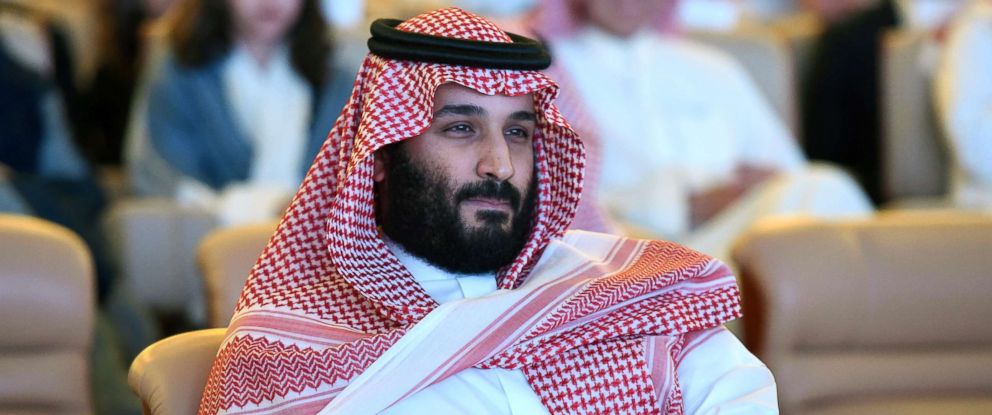Who is the Saudi crown prince who has been arresting cousins and consolidating power?
WATCH Who is the Saudi crown prince?
Never has any leader in Saudi Arabia had so much power since Ibn Saud founded the country in 1932.
Interested in Saudi Arabia?
Add Saudi Arabia as an interest to stay up to date on the latest Saudi Arabia news, video, and analysis from ABC News. Saudi Arabia Add Interest
Crown Prince Mohammed bin Salman, 32, has grabbed, consolidated and inherited much of the power over the kingdom, still officially ruled by his father, King Salman, 81.
Widely known by his initials, MBS, the prince has critics who call him a reckless hothead while his supporters say he is a bold, young leader.
He was promoted to crown prince last summer, leapfrogging over his older cousin, Mohammed bin Nayef, as the heir apparent.
His titles now include defense minister, deputy prime minister, chair of the Supreme Economic Council, head of a council overseeing the state-run oil giant Saudi Aramco, head of the Public Investment Fund and a pivotal member of the Council of Political and Security Affairs, among others.
He is the favorite son of King Salman, and before his swift ascension to power as the state's number two, he was the head of his father's royal court. Shortly after Salman became king in January 2015, MBS was appointed defense minister at just 29 years old.
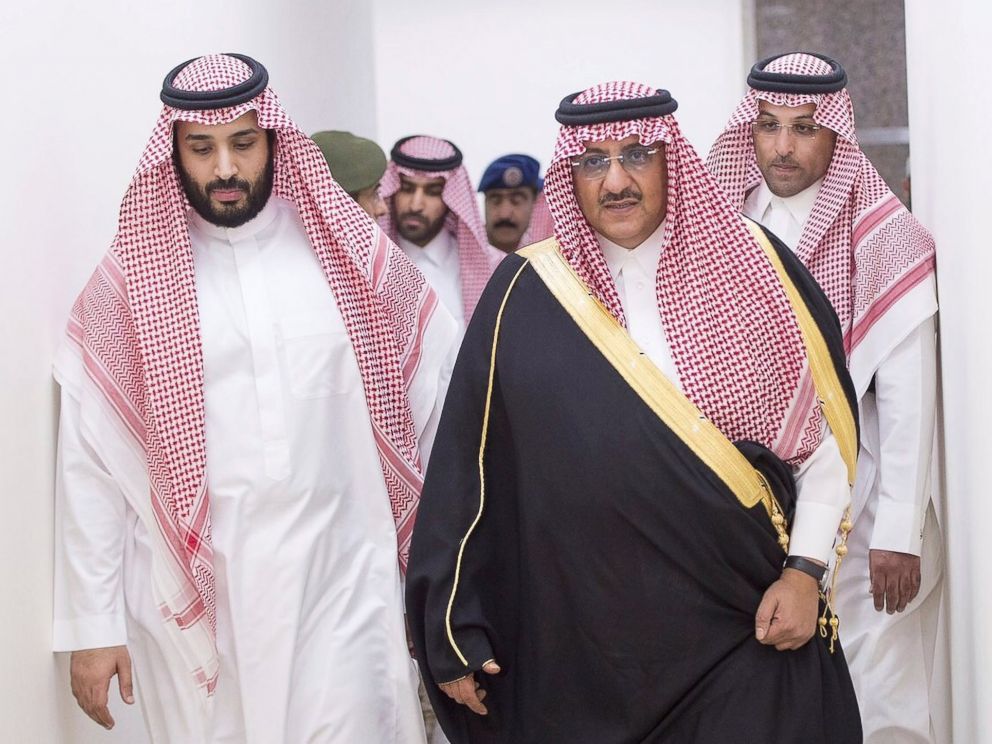 Balkis Press/Sipa via AP Images
Balkis Press/Sipa via AP ImagesBattling Iranian influence
Two months later, the young, untested defense minister sent Saudi forces into war in Yemen, ostensibly to counter Iranian influence in the region.
Speaking to The Economist last year in one of his rare interviews with Western press, MBS said "[The timing of the war] has nothing to do with the fact that I became minister. It has everything to do with what the Houthis did."
"I have surface-to-surface missiles right now on my borders," he added. "Is there any country in the world who would accept the fact that a militia with this kind of armament should be on their borders?"
Saudi forces, armed with American weapons, are fighting Iranian-backed Houthi rebels, but the cost is high and the Houthis maintain control over Yemen while millions starve. According to UNICEF, the humanitarian crisis in Yemen is dire.
“More than 20 million people, including over 11 million children, are in need of urgent humanitarian assistance. At least 14.8 million are without basic health care and an outbreak of cholera has resulted in more than 900,000 suspected cases," UNICEF says.
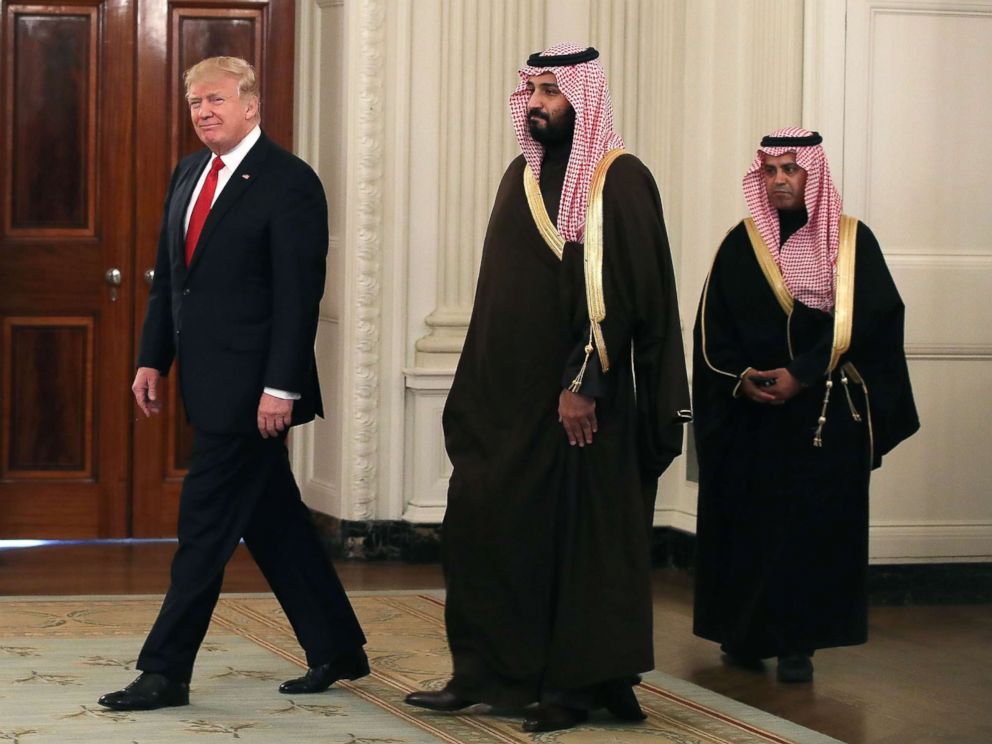 Mark Wilson/Getty Images
Mark Wilson/Getty ImagesWhen asked about the strategic goals in Yemen, MBS told The Economist, "All of our efforts are to push for the political solution. But this does not mean we will allow for the militia to expand on the ground, they must realize that every day they do not get closer to the political solution, they lose on the ground."
In his most recent television interview, on Saudi TV and Al Arabiya in May, MBS ruled out any dialogue with Iranian officials, saying Iran’s goal was “to control the Islamic world” and to spread its Shiite doctrine.
He added that in Saudi Arabia, "We know we are a main target of Iran."
Now, seven months since that interview, tensions between Saudi Arabia and Iran are even higher following the kingdom's latest provocation and an ensuing crisis involving its longtime ally, Lebanon.
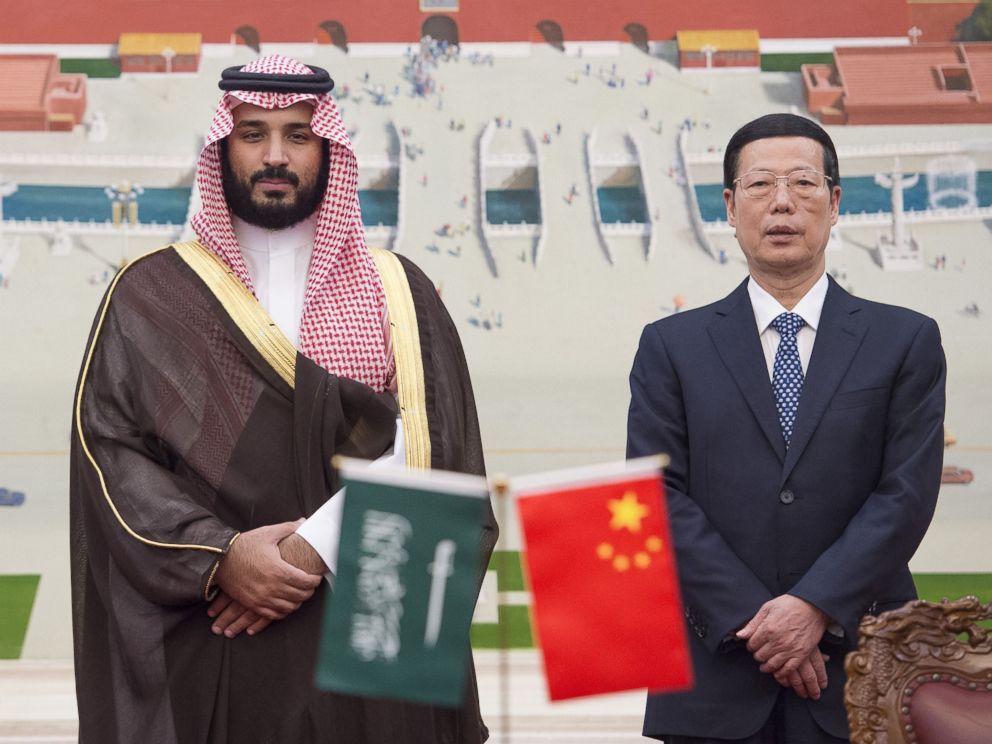 Anadolu Agency/Getty Images
Anadolu Agency/Getty ImagesTwo weeks ago, Saudi Arabia summoned Lebanon's Sunni Muslim prime minister, Saad Hariri, and forced him to resign publicly on Saudi television.
Hariri's fiery resignation statement blamed Iran for interfering in "the internal affairs of Arab countries." Hariri, also a Saudi citizen, has long been a weak leader of a Lebanon government partly controlled by the Iranian-backed Shiite militant group Hezbollah.
Shortly after his resignation, a rocket flew over the Saudi border from Yemen. “The involvement of Iran in supplying missiles to the Houthis is a direct military aggression by the Iranian regime,” the Saudi news agency SPA reported MBS as saying, “and may be considered an act of war against the kingdom.” Iran denies that it supports the Houthis.
KSA is engaged in wars of aggression, regional bullying, destabilizing behavior & risky provocations. It blames Iran for the consequences.4/
— Javad Zarif (@JZarif) November 6, 2017
Also as defense minister, MBS inked the latest multibillion dollar arms deal with the United States. And since January, he has become close to the Trump administration, notably, Trump's son-in-law and trusted advisor, Jared Kushner. Since President Trump took office, he has been clear that he favors a Saudi-led region, leaving the Islamic Republic of Iran out in the cold after President Obama spent years trying to normalize relations with Tehran through the 2015 nuclear deal.
Vision 2030
The kingdom felt shortchanged by the Obama administration, and on the heels of President Obama's final visit to Riyadh, MBS, then deputy crown prince, launched a Vision 2030 project and a National Transformation Plan. Together they comprise an ambitious economic and social reform package aimed at economic diversification, tax increases, planning for life after oil and opening up the strictly conservative kingdom to some social reform — at least a little.
MBS's plan to list Saudi Aramco publicly, a company that up until now has been owned solely by the king of Saudi Arabia, got the business community talking and gaming out how the world's biggest IPO might unfold. He has said he is hopeful the public offering will happen in 2018 or 2019.
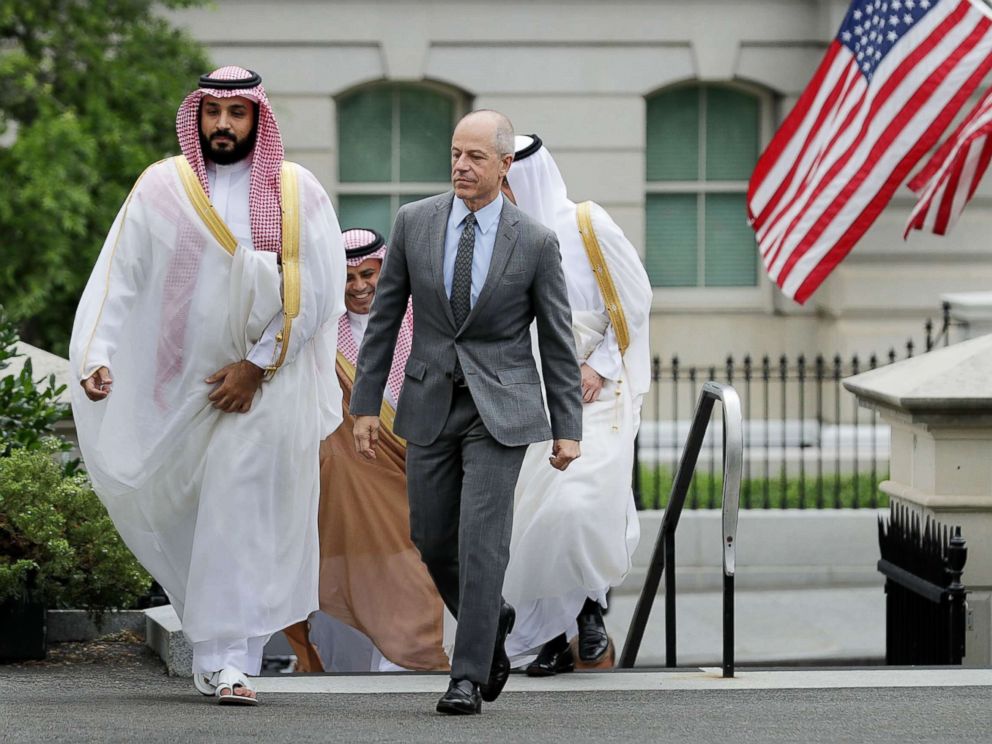 Chip Somodevilla/Getty Images
Chip Somodevilla/Getty ImagesMuch of his ambitious reforms target young Saudis, his peers.
More than half the population of Saudi Arabia is under 25 and 70 percent are under 35. MBS's plan is to create 1.2 million private-sector jobs by 2020 that could help employ these young people.
Reforms like lifting the driving ban for women, cutting back the powers of the religious police and allowing women into sports stadiums are small steps toward a more inclusive, modern society. MBS has also brought back movie screenings and concerts which were banned for much of the last two decades.
With each move, he is upending basic tenets that have ruled the kingdom for the last 85 years, and his critics say it's all happening too abruptly.
Paving his way to the throne
Two weeks ago, MBS ordered more than 200 businessmen, princes and even cabinet ministers under King Salman rounded up and detained. It was all done in his father's name and billed as an anti-corruption crackdown.
Critics cried foul, calling the arrests a "purge" and a stamping out of potential political challengers before MBS ascends to the throne, President Donald Trump weighed in, supporting his young ally.
I have great confidence in King Salman and the Crown Prince of Saudi Arabia, they know exactly what they are doing….
— Donald J. Trump (@realDonaldTrump) November 6, 2017
….Some of those they are harshly treating have been “milking” their country for years!
— Donald J. Trump (@realDonaldTrump) November 6, 2017
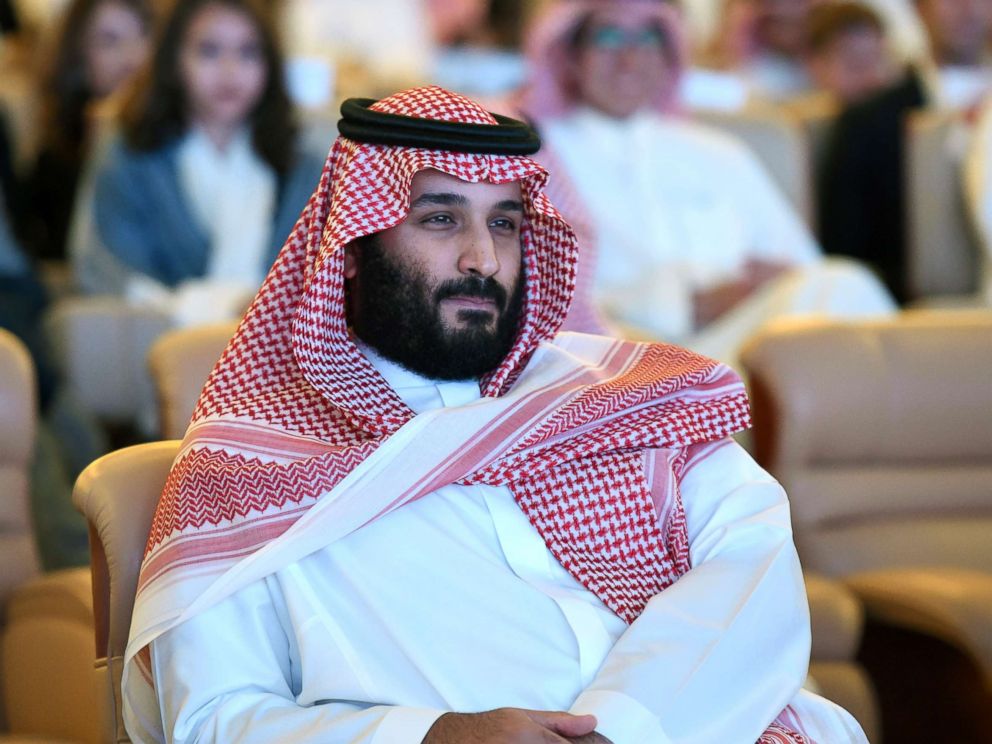 Fayez Nureldine/AFP/Getty Images
Fayez Nureldine/AFP/Getty ImagesThose detained were taken to Riyadh's luxurious Ritz Carlton, where they have reportedly been held for the last two weeks. Apparently, the slightly less luxurious Marriott across the road has also been commandeered for detentions.
Among those being held are two of MBS's most prominent cousins, including Prince Miteb bin Abdullah, who ran the powerful National Guard until earlier this month, and Prince Alwaleed bin Talal, who is perhaps Saudi's most famous billionaire. According to the Associated Press, some 1,700 personal bank accounts have been frozen.
MBS is largely seen as free of corruption, unlike many of his contemporaries, but the royal family and its patrons have historically operated above the law.
Faisal Abbas, the Saudi editor-in-chief of the daily Arab News, wrote last week that the kingdom is “damned if it acts against corruption, damned if it doesn’t.”
“More importantly, it is just mind-boggling that very few are noticing the obvious; which is that all of those being detained are incredibly wealthy,” Abbas added.
The Associated Press reported that investigators say they've already discovered at least $100 billion in funds allegedly linked to corruption and that the figure could rise.
"[The arrests do] not represent the start, but the completion of phase one of our anti-corruption push,” said Attorney General Sheikh Saud Al Mojeb, according to Reuters.
Analysts say the real test will be if the recent sweep truly changes the rules, or merely sends a signal, albeit a loud one, to the old guard as the ambitious prince clears his way to the throne.
- Star
Add Interests Customize your news feed by choosing the topics that interest you.
To save your interests across all devices Log In or Sign Up »Source – abcnews.go.com
